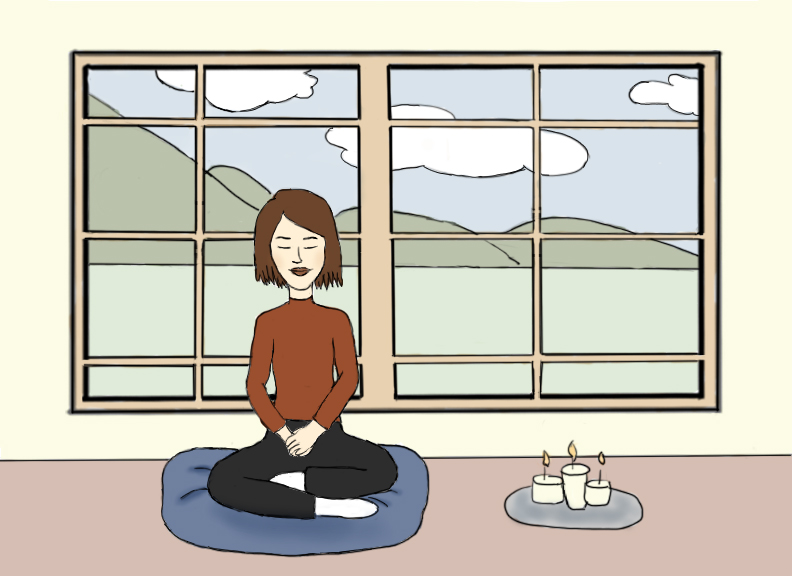Stress Reliever: Meditation
March 1, 2018
Many high schoolers, especially students at AHS, are usually juggling challenging academic classes, numerous extracurriculars, and complex social lives all at once. Because of this, stress can accumulate quickly. Psychological stress is a feeling nearly all people experience in their lives. Many, especially students, may turn to binge eating junk food or other harmful habits to cope with stress without considering other simpler, more beneficial, and more inexpensive options such as meditation!
Meditation can wipe away stress and relieve feelings of anxiety, tension, and worry that may come with stress. It can be practiced by everyone, making it a great universal coping method for stress. By meditating, one enters a deep state of relaxation and tranquility by pushing away the buildup of jumbled and complicated thoughts that may be filling the mind and causing stress. This calm and relaxed feeling can not only help deal with stress, but also with enjoying the rest of the day, as people who meditate experience greater emotional and physical health the same day.
In addition to a calming and relaxing sensation, meditation has other strong benefits like increased creativity, resilience, tolerance, self-awareness, and a greater knowledge of coping methods for stressful situations. Although there has not been scientific evidence directly linking meditation to a decrease in certain illnesses, meditation is believed to have a positive effect on those suffering from illnesses such as chronic pain, asthma, high blood pressure, heart disease, depression, and more. Even illnesses that you may not think to have any link to meditation, like irritable bowel syndrome, may be benefited by it.
If one desires to attempt meditation but does not know how to start, they can watch the multitude of meditation videos online, with some only being five minutes long! There are also many types of meditation, so everyone is likely to find a style that suits them. Thus, meditating will not have to take a very long; it can be done in literally minutes; however, the degree of benefit one experiences from meditation will vary from person to person and may be affected by how long one meditates.
If students think that they can’t meditate because they don’t have lots of spare time, then fear not. Meditation can be done almost anywhere, such as in car rides to and from school. In addition, it is not a bad idea to dedicate a few minutes or so each day in one’s schedule, such as right after waking up or right before going to bed, to meditate since it has so many physical, psychological, and emotional benefits.
Overall, meditation can not only provide great short-term benefits such as increased relaxation and a calming sensation throughout the rest of one’s day, but also surprising long-term benefits such as increased self-awareness and the ability to relieve pain from certain illnesses. Meditation is inexpensive, can be done anywhere, and is simple, making it one of the most applicable and universal ways to deal with psychological stress.

